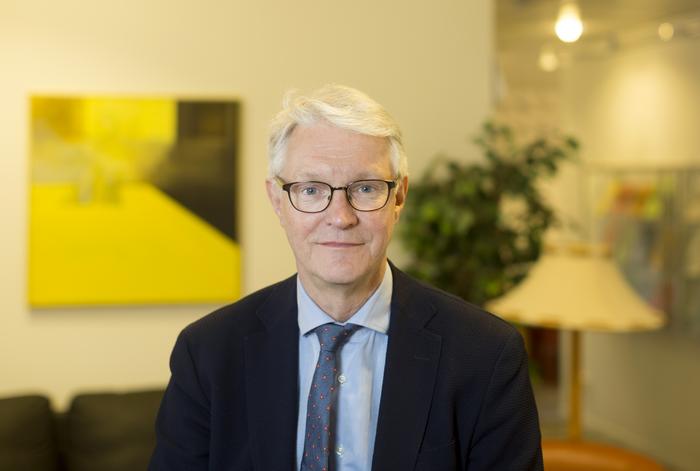As many as half of all patients admitted to hospital and other healthcare facilities are malnourished. This has serious consequences for the individual in terms of unnecessary suffering, poorer quality of life and mortality. Providing nutrients can alleviate these problems, but not enough attention is paid to this knowledge. This is the conclusion of a review article by researchers from Uppsala University and the University of Gothenburg published in the New England Journal of Medicine.

Credit: Mikael Wallerstedt/Uppsala University
As many as half of all patients admitted to hospital and other healthcare facilities are malnourished. This has serious consequences for the individual in terms of unnecessary suffering, poorer quality of life and mortality. Providing nutrients can alleviate these problems, but not enough attention is paid to this knowledge. This is the conclusion of a review article by researchers from Uppsala University and the University of Gothenburg published in the New England Journal of Medicine.
“Far too few patients are diagnosed with malnutrition. Underdiagnosis and undertreatment of the condition remains a problem in healthcare and elderly care, not only in Sweden but worldwide. However, by using fairly simple methods, patients and older adults could be made to feel much better,” says Tommy Cederholm, professor of clinical nutrition at Uppsala University.
Together with Ingvar Bosaeus, a consultant at Sahlgrenska University Hospital, Cederholm is coauthor of a review article on undernourishment published in the New England Journal of Medicine. The article summarises the global state of knowledge over the last 50 years, with the emphasis on developments over the last 5 years, concluding that the healthcare sector needs to make much greater use of the experience and knowledge revealed in the research.
It is estimated that between 5 and 10 per cent of all older adults in Sweden are malnourished. This figure rises to up to 50 per cent of patients being cared for in hospitals, nursing homes or similar facilities. Weight loss and malnutrition have traditionally been viewed as a natural expression of disease or aging, and something about which nothing can be done. It is now recognised that the most common cause is an underlying disease that causes the individual to eat less, leading to the breakdown of bodily organs and tissues.
People suffering from malnutrition will lose weight and the lack of nutrients may lead to muscle atrophy, making it difficult to cope with everyday life. They may also be more susceptible to infection and require more care, possibly involving long periods of hospitalisation and increased mortality.
Great strides have been made in knowledge about malnutrition and how to treat it over recent years. There is now global consensus among researchers and clinicians on the criteria for diagnosing malnutrition: weight loss, low body mass index, and reduced muscle mass in an individual with poor appetite, either with or without an underlying disease.
Recent large-scale clinical studies clearly show that malnutrition can be reversed. Counselling and treatment offered in collaboration with dietitians and the use of nutritional drinks can slow weight loss and reduce mortality.
“These are simple measures that are ignored every day. We now know that, with the exception of those in the advanced stages of terminal illnesses such as metastatic cancer, the vast majority of patients can be treated. In Sweden, for example, we have been working on this for many years, but we need to be even better,” says Ingvar Bosaeus, a consultant at Sahlgrenska University Hospital.
The researchers propose concrete measures to reduce suffering among older adults.
“It is crucial to register risk factors for malnutrition at an early stage and to be alert to weight loss and loss of appetite. One also needs to recommend nutrient-dense foods at an early stage and begin nutritional therapy in good time with, for example, nutritional drinks. This knowledge must become a much more explicit component of both basic and specialist training for doctors and nurses,” says Tommy Cederholm.
Journal
New England Journal of Medicine
Method of Research
Literature review
Subject of Research
People
Article Title
Malnutrition in Adults
Article Publication Date
10-Jul-2024



